BMW 7 Series VS Toyota Land Cruiser – Specs, Efficiency & Price Comparison
Which model is the better choice – the BMW 7 Series or the Toyota Land Cruiser? We compare performance (571 HP vs 205 HP), boot capacity (540 L vs 742 L), efficiency (1 L vs 10.30 L), and of course, the price (101300 £ vs 58300 £).
Find out now which car fits your needs better!
The BMW 7 Series (Sedan) is powered by a Plugin Hybrid or Diesel MHEV engine and comes with a Automatic transmission. In comparison, the Toyota Land Cruiser (Off-Roader) features a Diesel engine and a Automatic gearbox.
When it comes to boot capacity, the BMW 7 Series offers 540 L, while the Toyota Land Cruiser provides 742 L – depending on what matters most to you. If you’re looking for more power, you’ll need to decide whether the 571 HP of the BMW 7 Series or the 205 HP of the Toyota Land Cruiser suits your needs better.
There are also differences in efficiency: 1 L vs 10.30 L. In terms of price, the BMW 7 Series starts at 101300 £, while the Toyota Land Cruiser is available from 58300 £.
Compare all the key specs now and find out which model fits your lifestyle best!
BMW 7 Series
The BMW 7 Series represents the pinnacle of luxury and performance in the executive car segment, offering an unparalleled driving experience. Its elegant design combines aesthetic appeal with advanced technology, ensuring both comfort and connectivity for its passengers. With cutting-edge driver assistance systems, this flagship model showcases the brand's commitment to innovation and safety.
details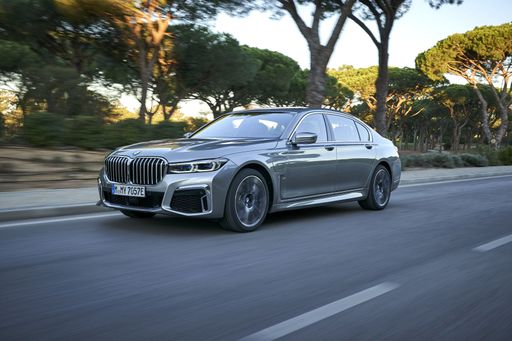 @ press.bmwgroup.com
@ press.bmwgroup.com
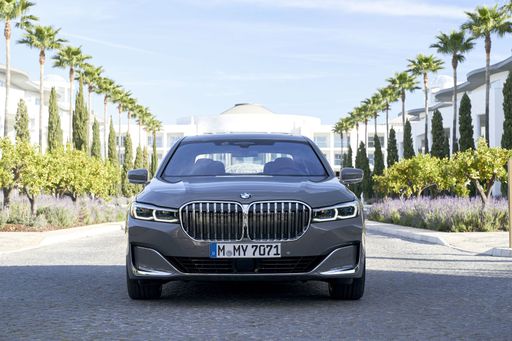 @ press.bmwgroup.com
@ press.bmwgroup.com
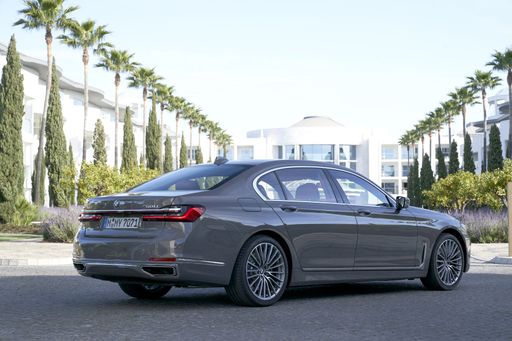 @ press.bmwgroup.com
@ press.bmwgroup.com
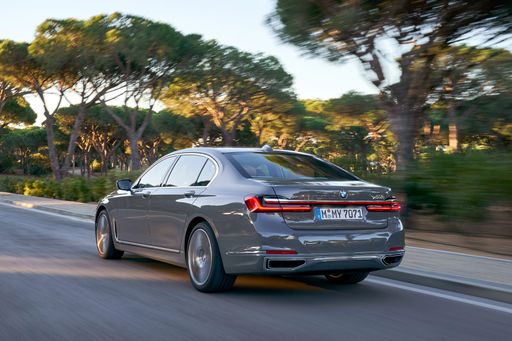 @ press.bmwgroup.com
@ press.bmwgroup.com
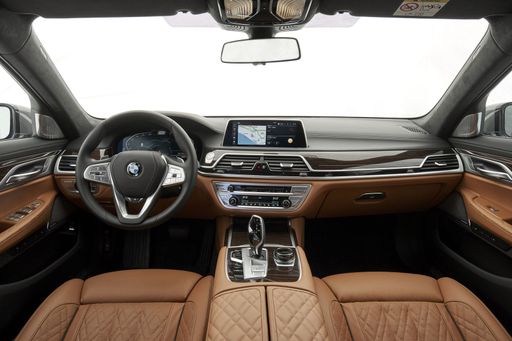 @ press.bmwgroup.com
@ press.bmwgroup.com
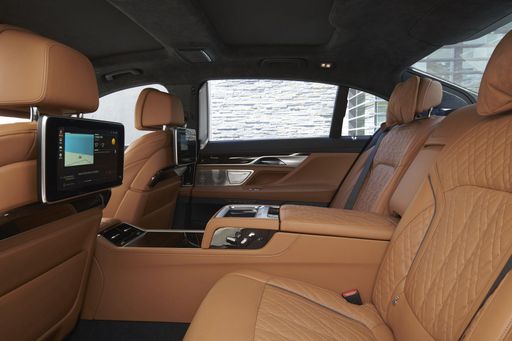 @ press.bmwgroup.com
@ press.bmwgroup.com
Toyota Land Cruiser
The Toyota Land Cruiser is renowned for its robust durability and exceptional off-road capabilities. Its design combines a rugged exterior with a comfortable and functional interior, appealing to both adventure seekers and city drivers. The vehicle's reliability and advanced technology make it a popular choice for those who require a dependable SUV that can handle a variety of terrains with ease.
details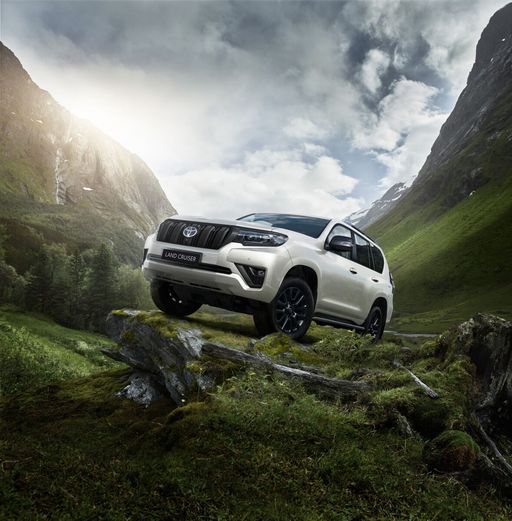 @ Toyota
@ Toyota
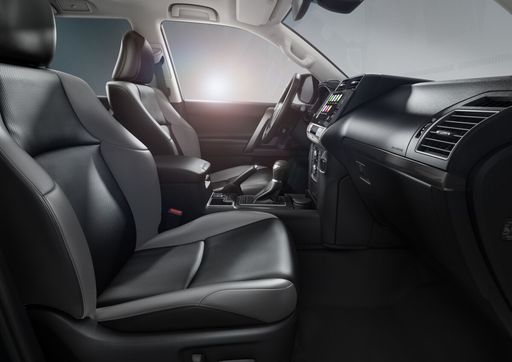 @ Toyota
@ Toyota
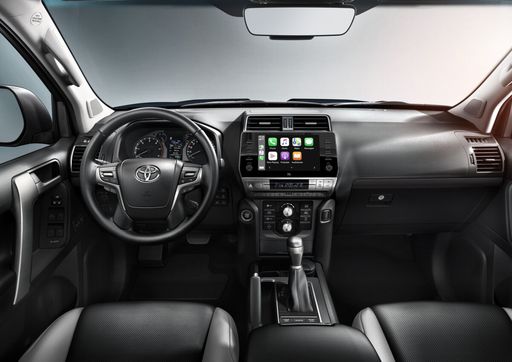 @ Toyota
@ Toyota

|

|
|
|
|
Costs and Consumption |
|
|---|---|
|
Price
101300 - 127300 £
|
Price
58300 - 78400 £
|
|
Consumption L/100km
1 - 6.1 L
|
Consumption L/100km
10.30 L
|
|
Consumption kWh/100km
-
|
Consumption kWh/100km
-
|
|
Electric Range
80 km
|
Electric Range
-
|
|
Battery Capacity
17.60 kWh
|
Battery Capacity
-
|
|
co2
23 - 160 g/km
|
co2
272 g/km
|
|
Fuel tank capacity
65 - 74 L
|
Fuel tank capacity
80 L
|
Dimensions and Body |
|
|---|---|
|
Body Type
Sedan
|
Body Type
Off-Roader
|
|
Seats
5
|
Seats
5
|
|
Doors
4
|
Doors
5
|
|
Curb weight
2255 - 2525 kg
|
Curb weight
2410 - 2550 kg
|
|
Trunk capacity
525 - 540 L
|
Trunk capacity
130 - 742 L
|
|
Length
5391 mm
|
Length
4925 mm
|
|
Width
1950 mm
|
Width
1980 mm
|
|
Height
1544 mm
|
Height
1935 mm
|
|
Payload
605 - 665 kg
|
Payload
600 - 690 kg
|
Engine and Performance |
|
|---|---|
|
Engine Type
Plugin Hybrid, Diesel MHEV
|
Engine Type
Diesel
|
|
Transmission
Automatic
|
Transmission
Automatic
|
|
Transmission Detail
Automatikgetriebe
|
Transmission Detail
Automatikgetriebe
|
|
Drive Type
All-Wheel Drive
|
Drive Type
All-Wheel Drive
|
|
Power HP
300 - 571 HP
|
Power HP
205 HP
|
|
Acceleration 0-100km/h
4.3 - 5.8 s
|
Acceleration 0-100km/h
-
|
|
Max Speed
250 km/h
|
Max Speed
170 km/h
|
|
Torque
670 - 800 Nm
|
Torque
500 Nm
|
|
Number of Cylinders
6
|
Number of Cylinders
4
|
|
Power kW
220 - 420 kW
|
Power kW
151 kW
|
|
Engine capacity
2993 - 2998 cm3
|
Engine capacity
2755 cm3
|
General |
|
|---|---|
|
Model Year
2023 - 2024
|
Model Year
2024
|
|
CO2 Efficiency Class
B, F
|
CO2 Efficiency Class
G
|
|
Brand
BMW
|
Brand
Toyota
|
BMW 7 Series
Introduction to the BMW 7 Series
The BMW 7 Series has long been synonymous with luxury, performance, and cutting-edge technology. The latest versions continue this tradition, integrating sophisticated hybrid technology with distinguished design and powerful performance. Whether cruising the motorway or navigating urban landscapes, the BMW 7 Series offers an exceptional driving experience.
Technical Specifications
The 2023 BMW 7 Series boasts a range of impressive specifications and features. The engine options, which include both diesel mild-hybrid and plug-in hybrid variants, provide flexibility for different driving needs. With power outputs ranging from 300 PS to a remarkable 571 PS, the 7 Series does not compromise on performance. Coupled with intelligent all-wheel drive and an automatic transmission, it assures smooth and responsive handling.
Fuel efficiency is another highlight, with the series achieving consumption figures as low as 1.1 L/100km for the plug-in hybrid models, showcasing the brand's commitment to sustainability without sacrificing performance.
Advanced Hybrid Technology
The integration of mild-hybrid and plug-in hybrid systems into the 7 Series marks a significant advancement in BMW's pursuit of greener motoring. The plug-in hybrid variants, with a battery capacity of 18.7 kWh, offer an all-electric range of up to 79 km - ideal for city driving. This hybrid setup not only reduces emissions but also enhances acceleration, delivering a swift 0-100 km/h time ranging from 4.3 to 5.8 seconds.
Luxury and Comfort
The BMW 7 Series epitomises luxury, featuring an interior designed for comfort and convenience. Standard equipment includes high-grade materials, advanced connectivity, and cutting-edge infotainment systems. The cabin is spacious, with ample room for five passengers and a generous boot capacity of up to 540 litres, ensuring that long journeys are as comfortable as they are efficient.
Safety and Innovation
Safety remains paramount in the BMW 7 Series, with an array of features designed to protect occupants and enhance driving confidence. This includes state-of-the-art driver assistance systems, which provide support in various driving conditions, thus ensuring a safer driving experience.
In conclusion, the BMW 7 Series stands as a testament to automotive innovation, blending traditional luxury with modern efficiency and performance. It's a fine choice for those who seek the pinnacle of automotive engineering and technology.
Toyota Land Cruiser
Introducing the Toyota Land Cruiser: A Legend Reinvented
The Toyota Land Cruiser is a name synonymous with reliability, durability, and off-road prowess. The latest iterations continue this legacy while incorporating cutting-edge technology and refined engineering to meet the demands of modern adventurers. Whether you're navigating rugged terrains or cruising city streets, the Land Cruiser promises an unparalleled driving experience.
Innovative Engineering and Powertrain
Under the bonnet, the Land Cruiser offers a 2.8-litre D-4D diesel engine, delivering an impressive 204 PS. This robust engine ensures a blend of power and efficiency, capable of handling any terrain with ease. Available in both manual and automatic transmissions, the vehicle caters to a wide range of driving preferences. With a torque ranging from 420 to 500 Nm, it provides enough grunt to tackle the most challenging conditions.
Performance and Efficiency
The Land Cruiser exhibits remarkable performance, accelerating from 0 to 100 km/h in just 9.9 seconds in select variants. Despite its formidable capabilities, the vehicle manages to maintain a commendable fuel consumption rate, ranging from 8.7 L/100km to 13.4 L/100km, depending on the configuration. The model achieves a maximum speed of 175 km/h, demonstrating its competence on both highways and off-road trails.
Design and Dimensions
Standing at a length between 4395 mm and 4920 mm, the Land Cruiser strikes a balance between robust stance and practical urban driving. Its width ranges from 1885 mm to 1980 mm, and it features a height between 1830 mm and 1870 mm. The SUV offers both three-door and five-door configurations, accommodating diverse lifestyle needs. Its spacious interior can be configured to seat between five to seven passengers, ensuring comfort on long journeys.
Off-Road Capability and Utility
Renowned for its off-road credentials, the Land Cruiser is equipped with a sophisticated all-wheel-drive system. It features a high ground clearance, allowing it to traverse uneven terrains without difficulty. The vehicle's payload capacity ranges from 495 kg to 770 kg, and its ample boot space — ranging from 104 L to 1151 L — caters to adventurous excursions as well as everyday practicalities.
Technological Features and Innovations
The latest Land Cruiser models are outfitted with advanced technological features designed to enhance both comfort and safety. From state-of-the-art infotainment systems to cutting-edge driver assistance technologies, this SUV ensures a connected and secure driving experience. With a range of trim levels available, including Executive and First Edition variants, the Land Cruiser offers a suite of luxury amenities tailored to discerning drivers.
Sustainability and Environmental Considerations
While the Land Cruiser is engineered for performance, Toyota also takes environmental impact into account. The models feature CO2 emissions ranging from 227 g/km to 288 g/km and a fuel efficiency rating classified under CO2-efficiency class G. These efforts reflect Toyota's commitment to reducing the environmental footprint of its vehicles while delivering unparalleled capability.
Conclusion: A Timeless Companion
The Toyota Land Cruiser remains an indomitable force in the world of four-wheel drives, combining enduring reliability with modern innovation. Whether it's exploring untamed wilderness or making a statement on urban roads, the Land Cruiser stands as a testament to Toyota’s engineering excellence. For adventurers seeking uncompromised performance and luxury, the Land Cruiser is poised to be a steadfast companion for years to come.
The prices and data displayed are estimates based on German list prices and may vary by country. This information is not legally binding.
